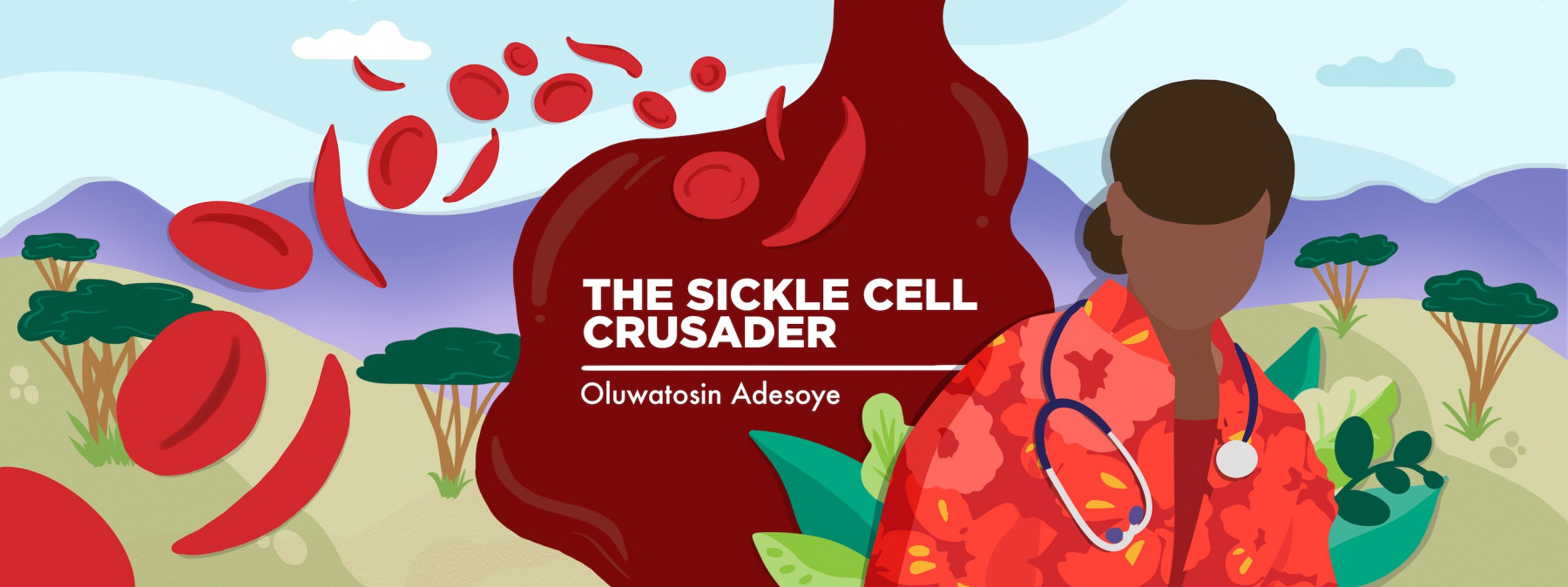My personal and professional journey to doing sickle cell research
With some of my own symptoms undocumented, I knew things had to change
Written by |

Sickle cell disease, as most of you readers know, is a group of genetic blood disorders characterized by chronic anemia, acute and chronic pain, organ damage, and a possibly reduced life expectancy. But despite the virulence of this disease, it’s highly under-researched.
A significant knowledge gap exists between the available scientific literature and the true manifestations of sickle cell disease, leaving many symptoms unacknowledged and poorly understood. This paucity of knowledge motivated me to become a sickle cell researcher.
I’m a doctor who has sickle cell, and as I grew older, I noticed that some complications I experienced weren’t documented in either scientific literature or medical books. Discussions with senior colleagues often dismissed these complications as unrelated to the disease. I remained unconvinced. The existing scientific literature didn’t satisfy my curiosity about the disease.
Scientific research is typically more prevalent in advanced countries, where there’s more research funding, than in less developed nations, like my home of Nigeria. Additionally, sickle cell disease is classified as a rare condition in developed regions such as the U.S. and U.K., where it primarily affects minority populations, especially Black people. In sub-Saharan Africa, however, the disease is much more prevalent — particularly in West Africa, which has the highest incidence rates.
The research there, however, is constrained by limited funding. There just aren’t enough studies.
In my quest for answers, I joined support groups for sickle cell patients. I was curious to find out if my experiences were as unusual as I’d been led to believe. They weren’t. These issues were frequently discussed in these groups, shedding light on their prevalence and impact.
I realized I wasn’t abnormal and there’s indeed a dearth of global knowledge out there. The disease’s pathophysiology, symptoms, complications, and management needed to be better understood.
Sickle cell warriors in these groups find comfort in openly discussing their symptoms because they can connect with other patients with similar experiences. I discovered many complications of sickle cell disease through fellow warriors in these groups, complications that weren’t and sometimes aren’t documented in medical literature.
I vividly recall discussions with a few hematologists years ago about memory loss, lip numbness, a persistently elevated white blood cell count, hypothyroidism, and various other complications. Their consistent response was that these problems weren’t related to sickle cell. Research, however, has now proved that they are.
Between 2019 and 2020, I observed a recurring discussion within sickle cell support groups, especially Sickle Cell Celebs, a group I established for sickle cell patients globally. The topic of conversation revolved around how, for some warriors, sexual intercourse can trigger a crisis. Interestingly, this symptom was not something I’d experienced personally or read about in medical books. Discussions among patients, however, suggested it was common.
Intrigued by this observation, I further researched the topic, again to find no existing literature about it. Although it’s not generalized, it’s prevalent enough to warrant documentation. Yet no such documentation existed.
Seeking insights, I engaged in discussions with a senior colleague, but we couldn’t find satisfactory answers to my numerous questions. Once more, we concluded that sickle cell disease needs more research.
Making a difference
Motivated by this revelation, I felt compelled to pursue patient-centered sickle cell research to unravel our countless challenges. My senior colleague provided valuable encouragement, which led me to venture into and conceptualize my first such research project.
In November 2022, I was the lead author of my first sickle cell-related research, “Predictors of Sex-Induced Crisis, Sexual Function and Marital Satisfaction in Women with Sickle Cell Disease,” which was published in The Journal of Sexual Medicine. This study was the first to highlight that sexual intercourse can trigger a vaso-occlusive crisis. It identified the predictors and risk factors associated with sex-induced crisis, as well as potential intervention and treatment options.
Millions of sickle cell patients worldwide continue to experience a poor quality of life, especially in sub-Saharan Africa, where almost 80% of sickle cell births occur. Countless disease mechanisms remain poorly understood while symptoms and complications go undocumented and premature deaths persist.
Therefore, I urge more health professionals and scientists to dedicate themselves to this research to save lives. Health professionals are also encouraged to join sickle cell support groups to learn more about the disease and areas deserving research.
By collaborating and seeking solutions, we can strive toward a comprehensive understanding of the disease and work toward improved treatments and, ultimately, a cure, enhancing the lives of people living with sickle cell disease worldwide.
Note: Sickle Cell Disease News is strictly a news and information website about the disease. It does not provide medical advice, diagnosis, or treatment. This content is not intended to be a substitute for professional medical advice, diagnosis, or treatment. Always seek the advice of your physician or other qualified health provider with any questions you may have regarding a medical condition. Never disregard professional medical advice or delay in seeking it because of something you have read on this website. The opinions expressed in this column are not those of Sickle Cell Disease News or its parent company, Bionews, and are intended to spark discussion about issues pertaining to sickle cell disease.




Leave a comment
Fill in the required fields to post. Your email address will not be published.